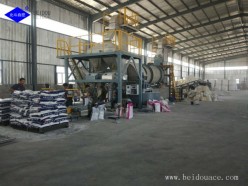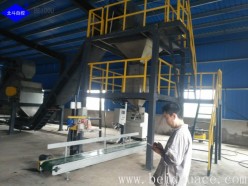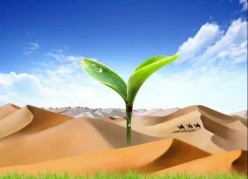 You are here:
You are here:
Products List
A brief analysis of the fertilizer market in Africa

A brief analysis of the fertilizer market in Africa
Africa's land is increasingly barren

• At present, in addition to war, disease, drought and locust infestation, the African continent is also facing a serious threat of land impoverishment. The specific performance is: the soil component - nitrogen phosphate potassium loss.
In sub-saharan Africa, 85% of the arable land lost an average of 30kg/ha of nutrients per year, and 40% of the land lost more than 60kg/ha, or $4 billion per year.
• General scholars believe that the main reasons for the impoverishment of Africa's land are: excessive planting and single varieties, serious damage to vegetation and grass, lack of land fertilizer supplement, and intensified soil erosion.
The African fertilizer market has huge potential
 At present, African agriculture is still quite backward, and most agricultural production is completed without the use of chemical fertilizers and pesticides, so the yield of crops such as food is extremely low.
At present, African agriculture is still quite backward, and most agricultural production is completed without the use of chemical fertilizers and pesticides, so the yield of crops such as food is extremely low.
In many parts of Africa, for example, rice yields only 100kg per mu.
In recent years, African countries have attached great importance to agricultural production and the demand for fertilizers has been increasing year by year.
But with poor infrastructure and a lack of funding, technology and management experience for local companies, African countries still import a lot of fertiliser from the rest of the world each year, despite having more than 80 per cent of the world's sulphate deposits.
According to the African green revolution association, Africa USES only 9kg to 10kg of fertilizer per hectare of farmland, far less than Brazil's 125kg and Asia's 150kg.
The shortage of fertilizer has seriously affected Africa's food production and become a major obstacle to Africa's food self-sufficiency.
Innovation in the use of fertilizers rekindled the hope of the "green revolution"
As two important means of promoting agricultural modernization in Africa, agrochemical products and agricultural machinery are becoming the most important components of the agricultural modernization strategy of African governments.

According to a report by the international federation of fertilizer industries, a group of 500 largest fertilizer producers in the world, the amount of fertilizer used in Africa has increased 130 percent since 2008, but is still less than 12 kilograms per hectare.
But according to a new world bank report, some African countries have made great progress in using fertilizer.
In Kenya, for example, the use of agricultural fertilizers has reached 44 kg/ha, Ghana 35 kg/ha, Ethiopia 24 kg/ha, and food production has also increased significantly.
South African fertilizer market
South Africa's agricultural demand for pesticides and fertilizers far exceeds that of other countries such as Nigeria, Tanzania, Ghana, Zambia and Kenya, producing more than twice as much per hectare as other African countries (3.7 tonnes per hectare).However, South Africa's production capacity per unit is still below the current global average.
"One Belt, One Road"is our aims
In 2016, although China's total fertilizer exports fell 21.5 percent, the amount of fertilizer exported to countries along the "One Belt And One Road" line increased rather than decreased.
• matching China's advanced chemical fertilizer production technology equipment and high-quality products with One Belt And One Road countries with large demand, close transportation distance and relatively low sea freight is becoming an important direction for the internationalization development of China's agricultural chemical enterprises.

Case in point: beidou sells 10 sets of fertilizer machines to African countries

Our products are exported across the sea to the international market, so far 14 years, our footprint throughout Asia, America, Oceania, Africa more than 30 countries and regions covers bb fertilizer production line,water soluble fertilizer production line and organic fertilizer machine.









